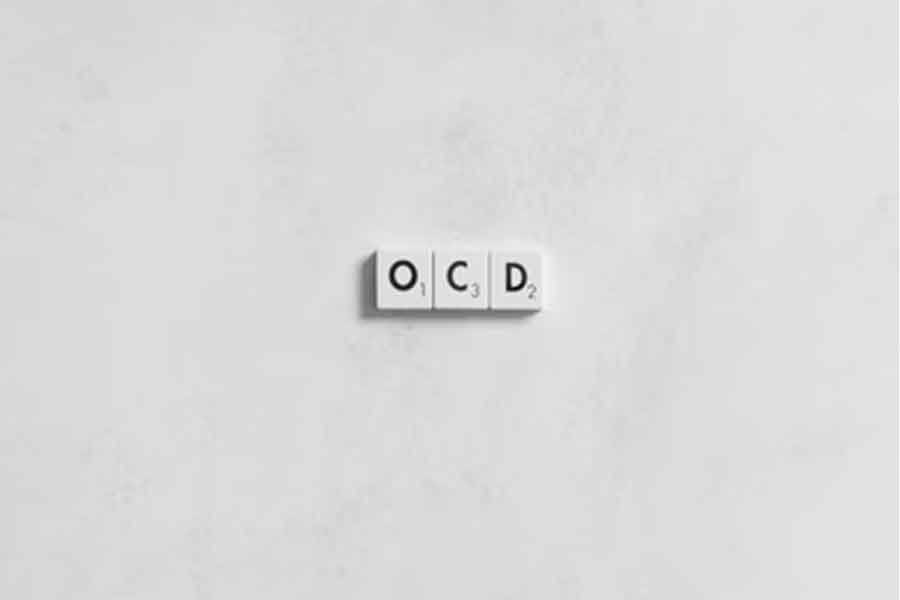Body dysmorphic disorder is a condition that affects between 5 million and 10 million people in the United States. Because they are so secretive when they have it, medical professionals believe that these numbers are low. As a result, many people with the condition are not being diagnosed with it because they may be ashamed or embarrassed by it. Because of this, these people are not being treated, and it is a condition that definitely needs treatment. Now that people can search the internet for an online therapist, the number of people refusing treatment for this condition is likely to go down.

We help you find your psychologist
BDD or OCD?
What is body dysmorphic disorder?
Body dysmorphic disorder causes people to think about their “flaws” for hours at a time. The thoughts they have about these flaws are always negative, but they don’t feel as if they are in control of them. Other people may tell them that they are exaggerating or that the flaws don’t even exist, but the sufferers do not believe them.
The negative thoughts these people have about their flaws disrupt their lives to a great degree. For example, preoccupation with their looks causes them so much distress that they cannot function normally. If they are going to school or are working at a job, they often miss several days because of the condition. They also refrain from participating in family functions or outings with friends because they are afraid that other people will observe their flaws and comment on them.
The negative thoughts people with BDD have are highly intrusive and persistent, but the reality is often very different. For example, the person may be bothered by a slight imperfection in her nose, but another person may not even notice it or may even believe that it does not exist. The person with the disorder believes that it is a significant flaw and feels very badly about it.

What is obsessive-compulsive disorder?
Obsessive-compulsive disorder is similar to BDD in that the sufferer is terrorized by obsessive thoughts, but these obsessive thoughts cause the person to perform compulsive behaviors over and over again. The thoughts are known as “obsessions,” and the behaviors are known as “compulsions.” Similar to BDD, the thoughts and compulsions also cause sufferers to miss work and school because of the extreme distress they are under.
The disorder is persistent. For example, people try to stop their compulsions, but doing this doesn’t make them feel better, and it only leads to more anxiety. Then, they feel the need to perform these ritualistic behaviors even more.
It isn’t unusual for people diagnosed with BDD to also be diagnosed with OCD. People diagnosed with BDD have also been diagnosed with eating disorders, depression and social anxiety disorder in large numbers. Because these conditions tend to have similar symptoms, physicians often misdiagnose them in the beginning. For example, someone exhibiting obsessions may be mistakenly diagnosed with OCD, but BDD is the most appropriate diagnosis. BDD is the correct diagnosis when a sufferer is solely preoccupied with his or her appearance. Therefore, it also resembles social anxiety disorder because sufferers avoid social situations because of shame or embarrassment for their physical appearance.
Why online body dysmorphic therapy?
People experiencing BDD need to obtain therapy for their disorder, but going out to meet with a therapist is distasteful to some. People in need of therapy can take advantage of the technology that exists today. Online therapy for BDD allows people to find a therapist online without going to an office for treatment. The therapy sessions will also be held online.
Several online portals exist that provide therapists for treatment of BDD and OCD. Patients have their therapy sessions with their therapists on their telephones, laptops or tablets. They can choose to have sessions by way of text messaging on the website. For some people, hearing the therapist’s voice is enough for them because they wish to remain as anonymous as possible. In this case, they are free to give a pseudonym to protect their privacy even further.
If you would rather have a face-to-face therapy session but don’t wish to go to a therapist’s office, you can attend therapy sessions with video conferencing. You can still have your anonymity because you can give a pseudonym, but your therapist may also be across the country because you will be online.

We help you find your psychologist
BetterHelp
BetterHelp is one of the best options. The fact that BetterHelp’s therapists are online doesn’t mean that they are not as educated and experienced as traditional therapists. The therapists BetterHelp hires have been practicing their professions for at least three years, and they all have at least 1,000 hours of experience.
Your therapist will be either a licensed professional therapist or a licensed clinical social worker. They obtained the education, completed the training and practice hours, and passed all of the examinations that are required of everyone to be certified by their states’ professional boards. Psychologists have their doctorate degrees, and all of their other therapists either have a doctorate or a master’s degree. These are the same qualifications they would need to have if they were to work as traditional therapists.
To begin therapy with BetterHelp, you must sign up for the platform and take a questionnaire. The questionnaire contains questions that will let the system know what type of therapy you need. For example, the system will ask you why you are looking for a therapist. It also asks you whether you are male or female, gay or straight, and whether or not you have been in therapy before.
Your answers to the questions will make it possible for the system to match you with the most appropriate therapist. The therapist sends you a message and then you and your therapist can set up a time to have your first therapy session. Your therapist will be able to begin to help you with the troubles you are having with BDD.
BDD-NET
BDD-NET is a program that exists online. Its purpose is to treat BDD with ERP techniques. ERP stands for “Exposure Response Prevention.” With this therapy, patients learn how to allow their obsessive thoughts to come to mind without performing their compulsive actions. It also uses cognitive behavioral therapy. The therapist is online with the patient, so when the patient needs to ask the therapist a question, he or she can send a message.
The therapy begins when the therapist introduces a stimulus that induces anxiety but is tolerable to the patient. The therapist introduces the stimulus a few more times, and the patient sees that his or her anxiety level doesn’t go up as high with each introduction. They also see that anxiety does not last as long each time. Then, the therapist can introduce a stimulus that induces a greater amount of anxiety.
Clinicians also use cognitive behavioral therapy to treat BDD. With this therapy, the therapist introduces the stimulus, but the patient is forbidden to perform any compulsive behaviors. This therapy allows patients to see that they will not be responsible for any negative effects if they fail to perform their compulsions. Although the therapist must make sure that the patient understands that it is possible that something negative could happen if they do not perform their compulsions, patients learn that the compulsions are the reason that they believe that there is a risk of not doing them.
Findyourtherapy.com
Findyourtherapy.com refers people to the online platforms designated to online therapy. On this website, you will receive a recommendation and the name of the website that will be able to help you.
Mytherapistonline.net
Mytherapistonline.net offers you the services of Nora Krainer. She has several years of experience practicing her profession. She focuses primarily on phenomenological and existential philosophies. Setting up an appointment with Ms. Krainer is as simple as signing up for the previous platforms. First, you must book a time to meet. Then, you will pay for your session with your PayPal account or your credit card. Lastly, the system sends you a link.
When you are ready to have your therapy session, you will click on your link, and it will take you to your therapy session. This will be an online and secure psychotherapy session.

Local online support groups
The International OCD Foundation holds an online body dysmorphic disorder support group on the first Friday and the third Friday of each month. People attend via Skype for the purpose of discussing the issues they are having with BDD. Of course, everyone in attendance receives an abundant amount of support. You have the option of attending with audio only or video.
The Zoom BDD support group is based in the United Kingdom, but it is open to everyone in the world. The group has the same goals as the International OCD Foundation’s support group, but this group may offer you many more perspectives on this issue because people from all over the world can join. The group meets every second Monday and fourth Monday of each month. The meetings take place on Zoom, but you have the option of appearing or not appearing on camera.
SG Support Groups is an option for you if you would rather not appear on camera or speak during the session. This support group gives you the option of typing your thoughts and feelings. Other members may respond to your posts and offer encouragement when it is needed. One drawback may be the fact that you may not receive a response right away. If you don’t mind not having immediate interaction, SG support groups may be good for you.
Conclusion: Online therapy for the treatment of body dysmorphic disorder
Body dysmorphic disorder can be treated online, but it hasn’t been easy for you to find help. The search just got easier because there are many websites that exist for the treatment of this condition. You may either attend therapy sessions with a qualified therapist, or you can find a support group. Either way, you aren’t far from finding the help that you need for your condition.

We help you find your psychologist


